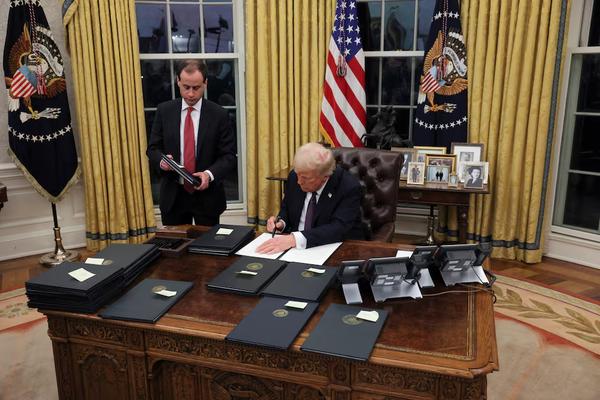President Trump Announces New Tariffs on Neighboring Countries
In a significant move that underscores his "America First" agenda, President Donald Trump has declared the imposition of new tariffs on Canada and Mexico, effective February 1. This decision, announced during a Q&A session in the Oval Office, marks a slight delay in the broader strategy of universal tariffs, reflecting the administration's ongoing trade policy recalibrations.

Trump Criticizes Canada Over Illegal Border Crossings
During the announcement, President Trump did not mince words, criticizing Canada for allowing a significant number of illegal border crossings and labeling the country as a "very bad abuser." This stance aligns with his longstanding concerns over illegal immigration and drug inflow, issues that have been central to his administration's policies.
USMCA and the Future of Trade Relations
The new tariffs come in the wake of the United States-Mexico-Canada Agreement (USMCA), which replaced NAFTA in 2020. Trump's criticism of NAFTA and his push for the USMCA have been pivotal in reshaping North American trade relations. The announcement also hints at the possibility of extending tariffs to European countries, leveraging trade as a tool for economic negotiation.
Economic Implications of Tariffs
While tariffs are intended to protect domestic industries and reduce trade deficits, they also pose risks of higher consumer prices and potential trade wars. President Trump, however, remains optimistic, asserting that the U.S. stands to gain financially from these measures. The broader implications for the U.S. economy and international trade relations remain a topic of keen interest and debate.









Comments